Peanut rust (Puccinia arachidis) is being found in fields across our state and area. This is different from early or late leafspot.
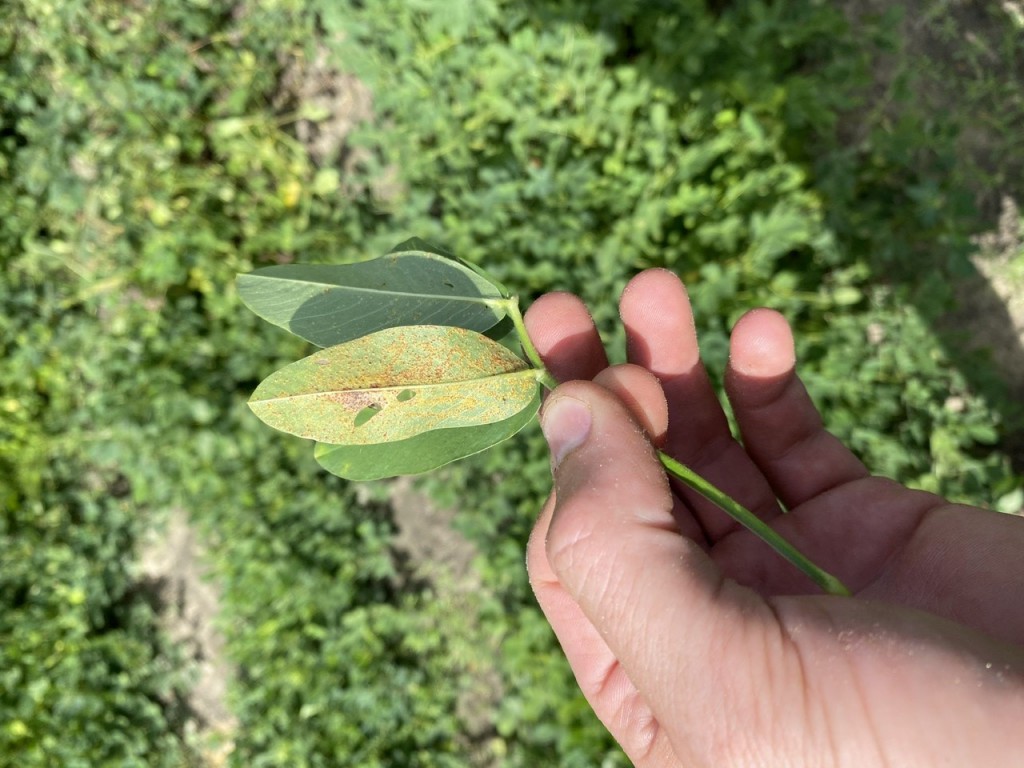
Dr. Culbreath, UGA Plant Pathologist says, “Chlorothalonil is active against rust, but is purely a protectant. Control of rust with chlorothalonil may require a shorter application window. Growers who like to end up their season with Topsin should not rely on that fungicide alone for rust control, mixtures with full rates of tebuconazole or chlorothalonil should help with rust. Tebuconazole and chlorothalonil have 14 day PHIs. Alto is another fungicide that works well against rust and provost silver should work well also. There are other products that have rust on the label, but we haven’t tested it against rust.”
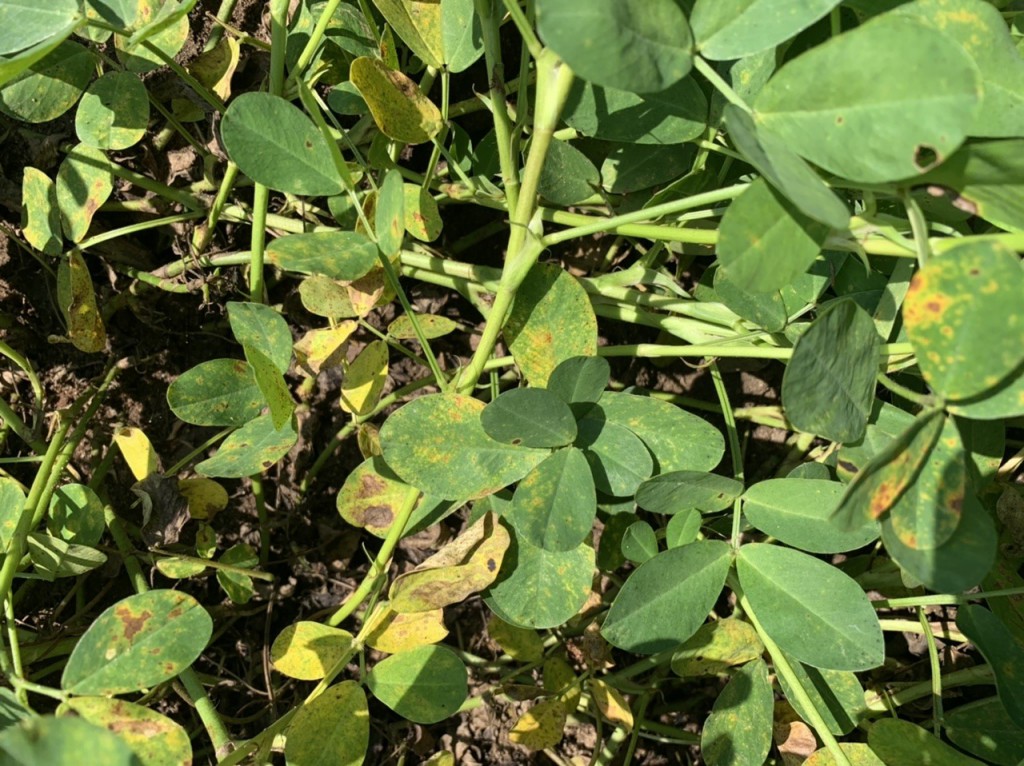
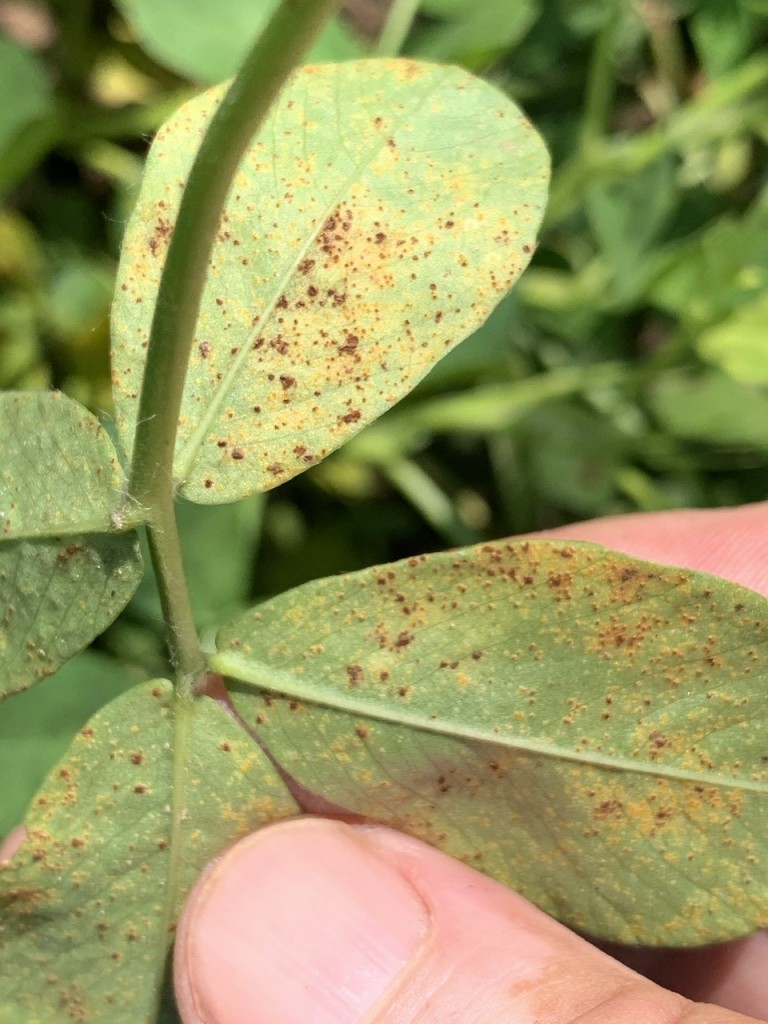
Cotton
Areolate mildew continues to be found in more cotton fields across the Coastal Plain. While the fields have been scattered, aereolate mildew will likely spread quickly with favoring weather conditions. Dr. Bob Kemerait reminds us that we have limited efficacy data, but what we have shows that timely fungicide applications can protect yield IF, 1) you are further than 4 weeks from defoliation, 2) you have good yield potential, 3) the disease has not advanced too far, and 4) weather conditions are favorable for spread.
Boll Rot
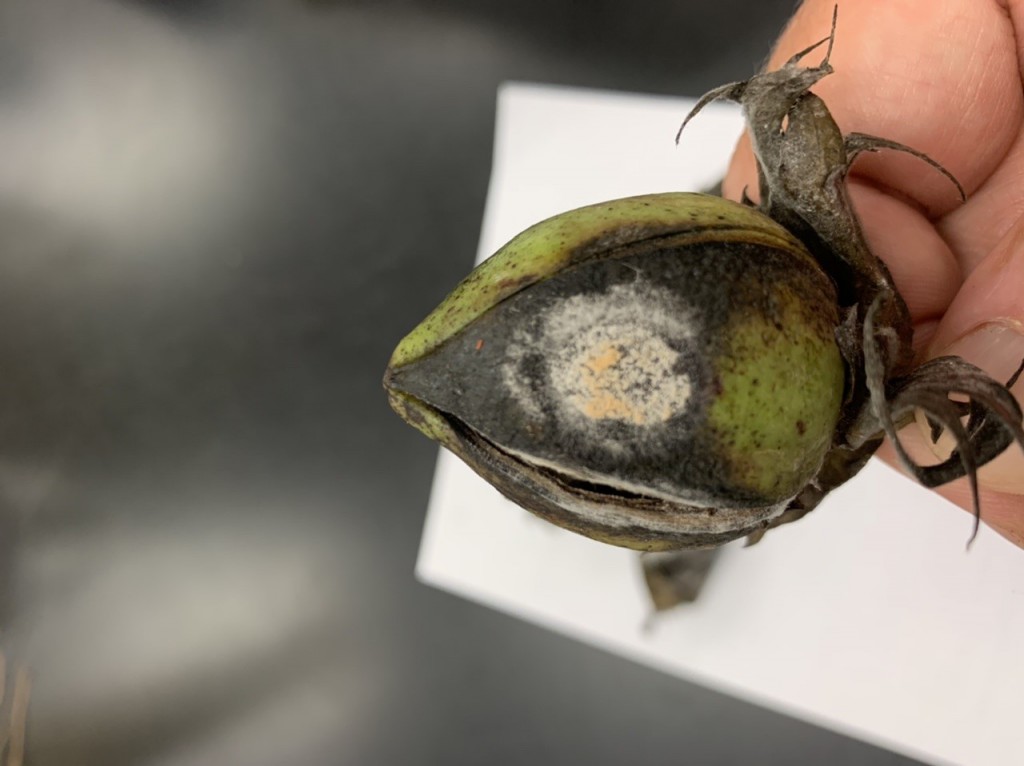
Diplodia boll rot and Colletotrichum boll rot are being found in fields. Lower bolls are usually the most infected. With increased rainfall this is likely to get worse. Unfortunately, fungicides do not help against these boll rots. If you have irrigated fields, avoid unnecessary irrigation.
Plenty of times people say if farming was easy, everyone would do it. Not including insects, the things active in fields are: Tomato spotted wilt, nematodes, white mold, leaf spot and leaf rust in peanut; areolate mildew, target spot, stemphylium leaf spot, bacterial blight, Fusarium wilt, and nematodes in cotton; Asian soybean rust, cercospora leaf blight, charcoal rot, and anthracnose in soybeans; and nematodes, blights and southern rust in corn, even though it’s late and in the harvest season of that crop.
Nematodes
If you think you may have a nematode issue, let me know. I’ll pull samples for you (Appling County), or you can bring them to our office, either way, it won’t you cost anything. This is offered for any row crop or vegetable field through the end of 2020. Soil needs to be moist, and don’t let the sample dry out, and it’s best if it’s kept in a cooler until dropped off.
Peanut Maturity Sampling
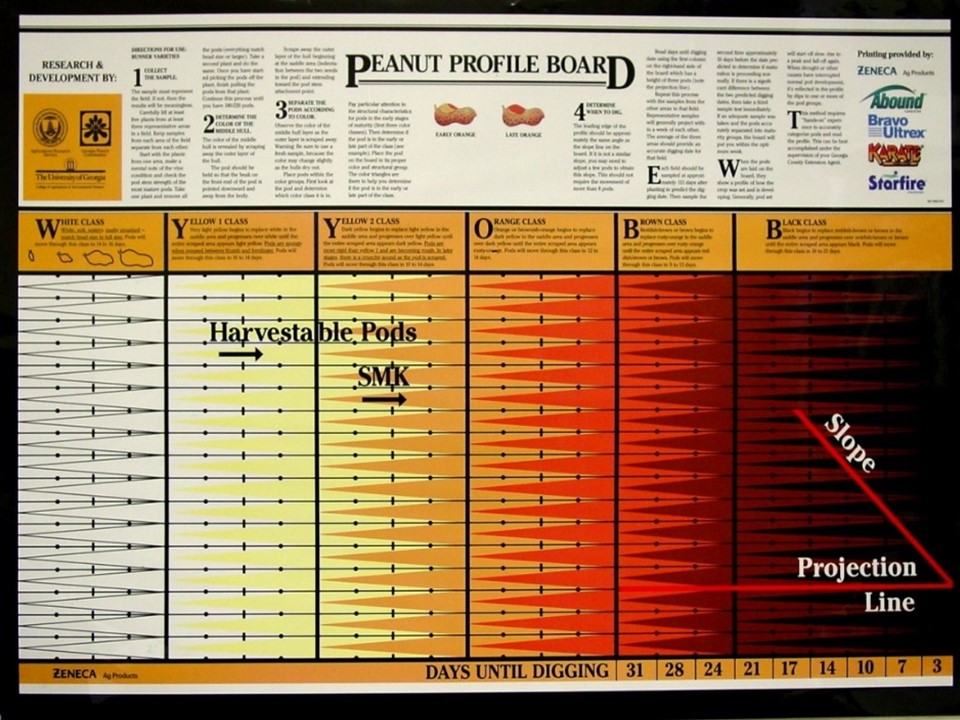
Due to COVID-19, I doubt there will be any meetings where peanuts are sampled for maturity in 2020. You can bring samples by our office, and I’ll be glad to check them. Starting September 1, I will also have a pressure washer setup at our office for you to use if you want to check your own peanuts and I’m out of the office. I’ll also come out to your farm and check any field if needed. Just give me a call. Last year one farmer jokingly asked why I checked his neighbor’s field and not his field. I said, “That’s simple. He asked me, and offered boiled peanuts.” This year will be different, but we can check peanuts and do our best to keep everyone safe. Please take advantage of this. Money is lost every year due to digging early or late.
Appling County Corn Variety Trial Results

UGA Junior Herd Program
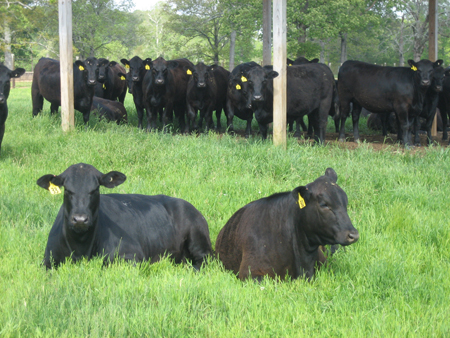
I’ve had plenty of people express to me their desire to have youth work with, or show cattle. While it would be great to have youth showing cows, and we will be promoting showing cows with some we are halter breaking soon, very few people understand what all is involved in showing cows, equipment needed, or the expense involved when compared to other livestock. There are numerous cattle producers in our county with children and grandchildren that have never shown any animal, including cows, so if a family that has all the needed equipment still doesn’t show cows, you can see the challenges we have to get a program going. However, there is a great way to get youth involved with cows outside of the show ring. The UGA Junior Herd Builder Program is open to 4-H members currently enrolled in 8th-12th grade.
Participants will develop a pen of heifers for the purpose of future production or sale. Participants will be responsible for securing three heifers of similar age and genetics to develop through the beef production cycle utilizing the UGA Extension Beef Management Calendar as a guide. Participants will learn from University of Georgia Beef cow and Animal Science experts.
Objectives:
- Expose youth to the beef industry of Georgia
- Educate and serve the beef industry of Georgia
- Enhance leadership, decision-making and management skills of youth participants
- Develop heifers which are source identified and genetically verified
- Promote animal and environmental stewardship
Important Dates:
- Program Registration Deadline: September 14, 2020
- Orientation: September 15, 2020
- Module Deadline: November 2, 2020
- Live Animal Deadline: November 16, 2020
- Recordbook Deadline: May 7, 2021
- Live Program Evaluation: May 21, 2021
Call 912-367-8130 if you have a child interested and to find out more information.
Livestock Judging

Continuing with the goal to get more of our youth exposed to livestock, we are starting a livestock judging team. There’s probably no other sector of agriculture that is under more scrutiny than the livestock animal industry. The more we can educate youth on these issues and familiarize them with policies and the animals themselves, the better they will be able to make informed decisions as they become a voting adult. If we don’t do our part, our youth will be left believing what someone with no agriculture or livestock experience tells them. While we will have to visit some area farms to practice judging, I’m thankful we have a location at our ag center that allows us the convenience to bring in some animals for judging. Call us at 912-367-8130 if you’re interested in helping, sponsoring, or if you have a child that wants to participate.